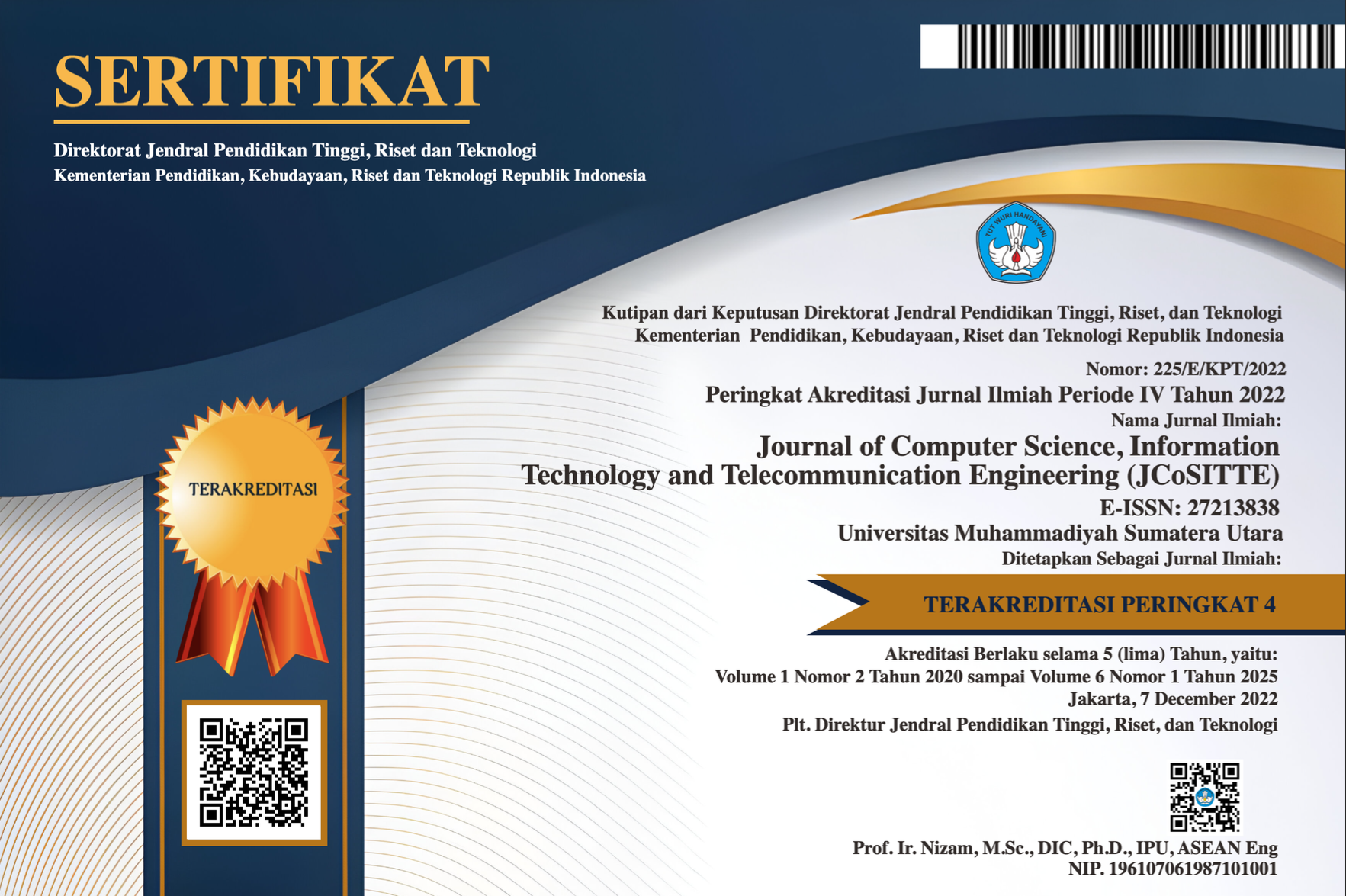A Systematic Review of Energy Efficiency Appliances Adoption in Developing Country
Abstract
Keywords
Full Text:
PDFReferences
Ali, M. R., Shafiq, M., & Andejany, M. (2021). Determinants of consumers’ intentions towards the purchase of energy efficient appliances in Pakistan: An extended model of the theory of planned behavior. Sustainability, 13(2), 565.
Baldini, M., Trivella, A., & Wente, J. W. (2018). The impact of socioeconomic and behavioural factors for purchasing energy efficient household appliances: A case study for Denmark. Energy policy, 120, 503-513.
Bhutto, M. Y., Soomro, Y. A., & Yang, H. (2022). Extending the theory of planned behavior: predicting young consumer purchase behavior of energy-efficient appliances (Evidence From Developing Economy). SAGE Open, 12(1), 21582440221078289.
Dianshu, F., Sovacool, B. K., & Vu, K. M. (2010). The barriers to energy efficiency in China: Assessing household electricity savings and consumer behavior in Liaoning Province. Energy Policy, 38(2), 1202-1209.
Ehrhardt-Martinez, K. (2011). Changing habits, lifestyles and choices: The behaviours that drive feedback-induced energy savings. Proceedings of the 2011 ECEEE Summer Study on Energy Efficiency in Buildings, Toulon, France, 2011, 6-11.
Fisch, C., & Block, J. (2018). Six tips for your (systematic) literature review in business and management research. Management Review Quarterly, 68, 103-106.
Geppert, J., & Stamminger, R. (2010). Do consumers act in a sustainable way using their refrigerator? The influence of consumer real life behaviour on the energy consumption of cooling appliances. International Journal of Consumer Studies, 34(2), 219-227.
Ha, H. Y., & Janda, S. (2012). Predicting consumer intentions to purchase energy‐efficient products. Journal of Consumer Marketing, 29(7), 461-469.
Li, G., Li, W., Jin, Z., & Wang, Z. (2019). Influence of environmental concern and knowledge on households’ willingness to purchase energy-efficient appliances: A case study in Shanxi, China. Sustainability, 11(4), 1073.
Ma, G., Andrews-Speed, P., & Zhang, J. D. (2011). Study on Chinese consumer attitudes on energy-saving household appliances and government policies: based on a questionnaire survey of residents in Chongqing, China. Energy Procedia, 5, 445-451.
Mizobuchi, K., & Takeuchi, K. (2016). Replacement or additional purchase: The impact of energy-efficient appliances on household electricity saving under public pressures. Energy Policy, 93, 137-148.
Nguyen, T. N., Lobo, A., & Greenland, S. (2016). Pro-environmental purchase behaviour: The role of consumers' biospheric values. Journal of Retailing and Consumer Services, 33, 98-108.
Nguyen, T. N., Lobo, A., & Greenland, S. (2017). Energy efficient household appliances in emerging markets: the influence of consumers' values and knowledge on their attitudes and purchase behaviour. International journal of consumer studies, 41(2), 167-177.
Pierce, J., Schiano, D. J., & Paulos, E. (2010, April). Home, habits, and energy: examining domestic interactions and energy consumption. In Proceedings of the SIGCHI conference on human factors in computing systems (pp. 1985-1994).
Segev, S. (2015). Modelling household conservation behaviour among ethnic consumers: The path from values to behaviours. International Journal of Consumer Studies, 39(3), 193-202.
Stadelmann, M., & Schubert, R. (2018). How do different designs of energy labels influence purchases of household appliances? A field study in Switzerland. Ecological economics, 144, 112-123.
Tan, C. S., Ooi, H. Y., & Goh, Y. N. (2017). A moral extension of the theory of planned behavior to predict consumers’ purchase intention for energy-efficient household appliances in Malaysia. Energy Policy, 107, 459-471.
Turaga, R. M. R., Howarth, R. B., & Borsuk, M. E. (2010). Pro‐environmental behavior: Rational choice meets moral motivation. Annals of the New York Academy of Sciences, 1185(1), 211-224.
Wang, B., Deng, N., Liu, X., Sun, Q., & Wang, Z. (2021). Effect of energy efficiency labels on household appliance choice in China: Sustainable consumption or irrational intertemporal choice?. Resources, Conservation and Recycling, 169, 105458.
Wang, Z., Sun, Q., Wang, B., & Zhang, B. (2019). Purchasing intentions of Chinese consumers on energy-efficient appliances: Is the energy efficiency label effective?. Journal of Cleaner Production, 238, 117896.
Wang, Z., Wang, X., & Guo, D. (2017). Policy implications of the purchasing intentions towards energy-efficient appliances among China’s urban residents: Do subsidies work?. Energy Policy, 102, 430-439.
Wijaya, M. E., & Tezuka, T. (2013). A comparative study of households' electricity consumption characteristics in Indonesia: A techno-socioeconomic analysis. Energy for Sustainable Development, 17(6), 596-604.
DOI: https://doi.org/10.30596/jcositte.v5i1.18209
Refbacks
- There are currently no refbacks.





.png)

